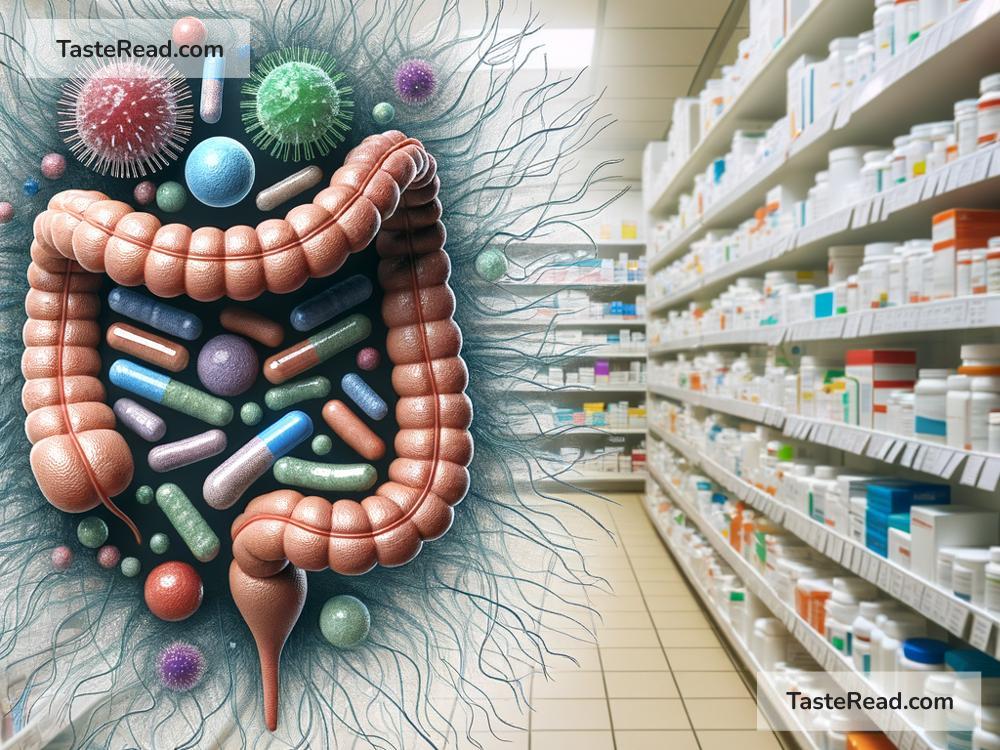The Impact of Antibiotics on Gut Health: What You Need to Know
Antibiotics are a powerful weapon in modern medicine. They save lives by fighting infections caused by harmful bacteria. If you’ve ever had strep throat, a urinary tract infection, or pneumonia, antibiotics probably helped you recover. But while these medicines are great at killing bad bacteria, they don’t discriminate—they can harm the helpful bacteria in your body too.
One area where antibiotics have a major impact is your gut. The gut is home to trillions of bacteria, collectively known as the gut microbiome. These bacteria aren’t just hanging out—they play essential roles in digestion, immunity, and overall health. In this blog, we’ll explore how antibiotics affect the gut, why it matters, and what you can do to protect your gut health during and after taking antibiotics.
What Is the Gut Microbiome?
The gut microbiome is a community of microorganisms living in your digestive system. It’s made up of bacteria, fungi, viruses, and other tiny organisms—most of which are beneficial to your health.
These microbes help break down food, produce vitamins like Vitamin K and certain B vitamins, and fight off harmful pathogens. They also communicate with your immune system, helping it stay strong and balanced. In fact, scientists believe the gut microbiome plays a role in everything from mood regulation to preventing chronic diseases like diabetes and heart disease.
Maintaining a diverse and balanced gut microbiome is crucial for your well-being. But certain factors, like diet, stress, and medications—including antibiotics—can disrupt this balance.
How Do Antibiotics Affect Gut Health?
Antibiotics work by killing bacteria or stopping their growth. While this is necessary to fight infections, antibiotics don’t differentiate between “bad” bacteria (the ones making you sick) and “good” bacteria (the ones keeping your gut healthy).
When you take antibiotics, they can wipe out large portions of your gut microbiome. This loss of diversity can lead to several issues:
-
Digestive Problems: Without enough good bacteria, you might experience diarrhea, bloating, or stomach pain. Antibiotic-associated diarrhea is a common side effect.
-
Weakened Immunity: Your gut microbiome helps train your immune system. A disrupted microbiome can make it harder for your body to fight off infections and may even increase the risk of autoimmune conditions.
-
Overgrowth of Harmful Bacteria: Sometimes, harmful bacteria like Clostridioides difficile (commonly known as C. diff) can take advantage of the disrupted microbiome and grow out of control. C. diff infections can cause severe diarrhea and other complications.
-
Long-Term Health Impacts: Research suggests that changes to the microbiome from antibiotics could be linked to obesity, allergies, and chronic illnesses later in life. For example, studies have found that frequent antibiotic use in children may affect their gut health and immune development.
Are All Antibiotics the Same?
Not all antibiotics have the same effect on your gut. Some antibiotics are “broad-spectrum,” meaning they kill a wide variety of bacteria. These are more likely to disrupt your gut microbiome. Others are “narrow-spectrum” and target specific bacteria, which can be gentler on your gut.
The length of treatment also matters. A short course of antibiotics may cause only minor disruptions, whereas long-term or repeated antibiotic use can have a more significant impact.
How Can You Protect Your Gut Health?
The good news is that there are steps you can take to safeguard your gut health while using antibiotics:
-
Take Probiotics: Probiotics are supplements containing live beneficial bacteria. Taking probiotics alongside antibiotics may help replenish good bacteria in your gut and reduce side effects like diarrhea. Look for strains like Lactobacillus or Saccharomyces boulardii.
-
Eat a Healthy Diet: Foods high in fiber, such as fruits, vegetables, whole grains, and legumes, support the growth of good bacteria in your gut. Fermented foods like yogurt, kefir, kimchi, and sauerkraut contain natural probiotics that can help restore your microbiome.
-
Finish Your Antibiotics as Prescribed: It’s important to take your full course of antibiotics, even if you start feeling better. Stopping too soon can lead to antibiotic resistance, making infections harder to treat in the future.
-
Avoid Unnecessary Antibiotics: Antibiotics don’t work against viruses, like the ones that cause colds or the flu. Be cautious about using antibiotics for conditions that don’t require them. If you’re unsure, ask your doctor.
-
Give Your Gut Time to Recover: After finishing antibiotics, your microbiome will slowly start to rebuild itself. Focus on continuing a gut-friendly diet and healthy lifestyle to support this process.
The Bigger Picture
Antibiotics are an incredible medical tool, and sometimes they’re absolutely necessary. But their impact on gut health shouldn’t be ignored. Research into the gut microbiome is helping scientists understand the long-term consequences of antibiotics—and how to prevent problems.
By making informed choices and taking steps to protect your gut health, you can minimize the negative effects of antibiotics. If you’re ever prescribed antibiotics, don’t hesitate to ask your doctor about ways to support your microbiome during treatment.
Your gut is an important part of your health and well-being, so treat it with care!


